A few months ago I started noticing that my 2.5 year old son, Onetime, was starting to lie! Daddy would come home at the end of the day and ask him a series of questions about what he had done that day. Onetime would answer “Um-hum!!!” with enthusiasm when my husband would ask if he had done things that we hadn’t done!
I was astonished! That was when I realized that I better start looking into the whole “honesty thing” and find out how to address this issue with my son.
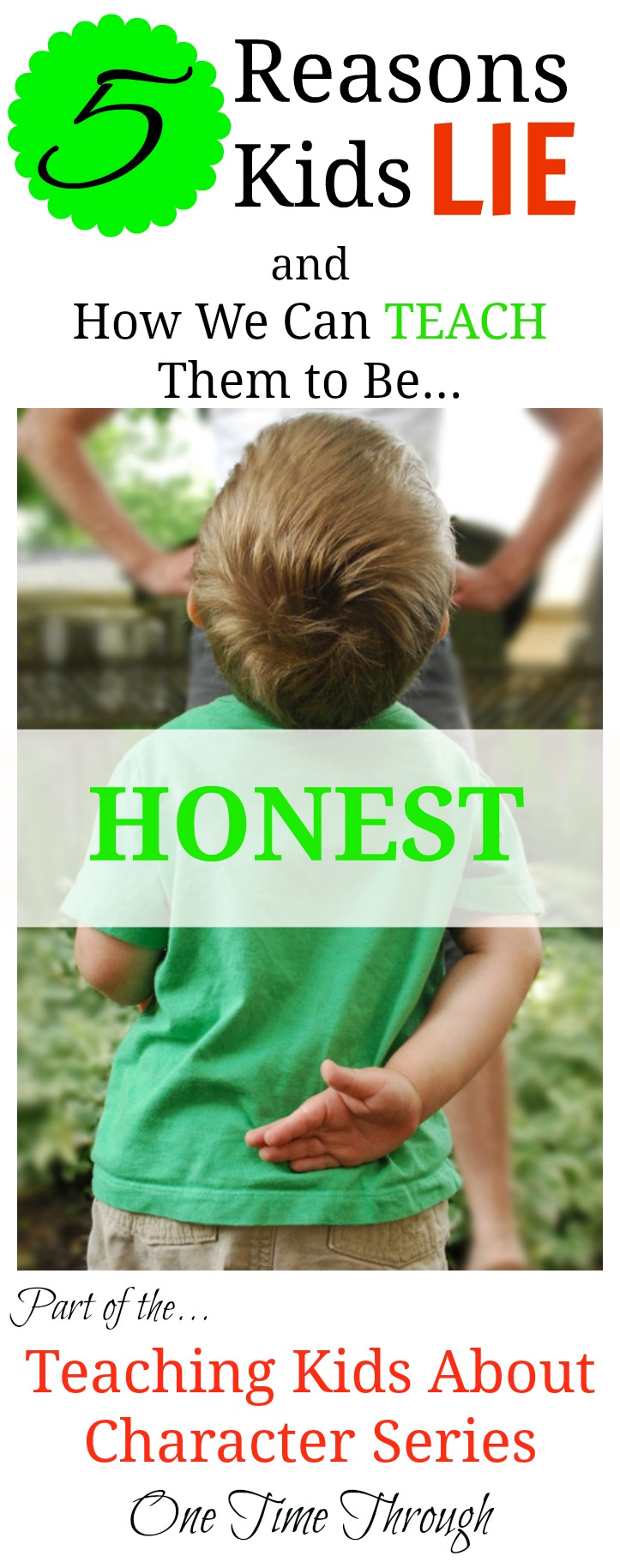
First of all, what I found was very reassuring. It is completely normal for kids aged 3 to 5 to tell untruths.
They are still in a stage of development where reality is blurred with fantasy and that can have a big impact on the “stories” they tell. That being said, it is important to start to teach preschoolers the difference at an early age.
I found it very helpful to learn about the various reasons why kids this age lie and I’ve summarized some of the strategies I’ve heard about, and read about, for addressing each of these kinds of untruths.
Why Do Preschoolers Lie?
 Preschoolers Lie to PLEASE the Adults Around Them
Preschoolers Lie to PLEASE the Adults Around Them
This is probably part of the reason why my son was telling Daddy that he had gone to the playground and had lots of fun that day – even when we went to the grocery store and then stayed inside for the morning!
Daddy would react so positively when Onetime would agree with these things – it’s no wonder.
Aren’t we lucky at this age that our kids still want to please us? It won’t last for ever – that’s for sure.
Although I didn’t really find any specific advice on how to stop this kind of lying, just being aware that our kids want to please us and feel our approval is helpful.
If we can make sure that they feel loved and that they are pleasing us – even if they disagree with us – maybe that’s all we can do most of the time. This is a good reason to avoid praising or criticizing our kids.
According to Naomi Aldort, author of Raising Our Children, Raising Ourselves, needing to please us and live up to our expectations causes kids a lot of unnecessary anxiety.
Alfie Kohn, author of Unconditional Parenting also argues strongly against praising our kids. He describes praise as the flip side to punishment and lumps them both in the category of methods that are used to control our kids.
What’s the Alternative?
An alternative to praising is encouragement.
Adele Faber and Elaine Mazlish, authors of How to Talk So Kids Will Listen & Listen So Kids Will Talk suggest just describing your child’s positive behaviour, without any added evaluation. This lets the child feel recognized for their positive behaviour, while allowing them to conclude themselves what they have done well.
An example of a praising statement would be, “Onetime, you are such a good boy when you help clean up!” Did you notice the evaluative word “good“? An encouraging statement would sound like, “Onetime – I noticed you helping me clean up your toys today! Wow! That’s what I call helpful.“
To find even more examples of encouragement, versus praise, check out this post 7 Effective Ways to Encourage Kids and Healthy Self-Esteem in Kids: 10 Things Parents Can DO to Help.
In this particular situation though, because I knew that we hadn’t gone to the playground, I made sure to say to my son, “It would have been fun to go to the playground today – wouldn’t it? But the truth is we went to the grocery store.”
Pointing out the reality to your child helps them start to understand that you value honesty, over your child giving you the “right” answer that they think you want to hear.
Preschoolers Lie as a Part of Wishful Thinking

Another reason why young children lie is that they may want something so much that they come to believe it is real!
This is a part of that developmental stage where they aren’t always sure what is reality and what is not. It’s this kind of thinking that makes preschoolers so imaginative!
It’s important not to overreact to these kinds of untruths. Just accept that this is one way your child is expressing something that they really want to you.
A handy phrase to use when your child tells a “story” about doing something that clearly they did not, is to say, “You might wish that we had gone to play with your friend today, but remember, we really just went grocery shopping.”
When your child appears to be telling a “tall tale”, Judy Arnall, author of Discipline Without Distress suggests saying something like, “What a great story! Let’s write it down.”
Again, the focus is on helping them learn to distinguish fantasy from reality, while conveying that you value honesty.
Preschoolers Lie Because They Are Confused
This reason stems out of the same developmental stage I mentioned above. Because young children still have difficulty grasping reality, when asked questions, they may innocently “fill-in-the-blanks” with untruths as a way of completing their thoughts.
These kinds of untruths, can be dealt with in the same way as we would react to untruths told because of wishful thinking.
Preschoolers Lie to Avoid Getting in Trouble

This doesn’t just apply to preschoolers, but to all kids (and adults!). If a child fears that they are going to be reprimanded, punished, or shamed after telling the truth – then they are going to say what they need to say to make sure this doesn’t happen.
A friend told me about a recent camping weekend she spent with the Cub Scouts that relates to this form of lying. One of the cubs spilled his macaroni dinner on the ground all over one of the leader’s mess kits. When the leader found the mess and asked who had made it – all of the boys denied it had been them.
Apparently – the situation blew up into a big deal and became a bit of a “witch-hunt” to find the lying culprit! As a helper, my friend felt unsure about how to step in and stop what was going on. I can’t imagine how scared the boy who had an accident must have been feeling.
The thing is, this kind of lying can be prevented by taking a problem-solving approach when there are accidents or even when your child makes a mistake or misbehaves.
Adele Faber and Elaine Mazlish, advise responding to an accident or mistake by saying something matter-of-fact like, “We have a problem here. How can you make this better?“
Then you can actively involve the child in cleaning up, or making amends for the mistake.
Judy Arnall advises just describing what you see and stating your expectations for making amends.
For example, you could say something like, “I see you knocked over the flower vase. I want you to help me clean it up. Please go get a towel.”
Or “I see you put my iPod in the toilet. Water can damage machines. We’re lucky it still works. I want you to help me put this outside in the sun so it can dry out.”
After the situation is remedied, you can engage your child in a discussion about how to avoid this kind of thing happening again. “Now that the water is cleaned up, how can you make sure this doesn’t happen again?“
Barbara Coloroso, author of Kids Are Worth It! also supports a problem-solving approach with kids.
She talks about not getting upset about realities (e.g. the iPod is in the toilet – we can’t go back in time and make it not in the toilet – right?), but instead focusing on how to FIX or make them better. She’s famous for saying, “What’s your plan?” to a child when discussing how to make amends.
All four of these parenting gurus would agree that the point is not to shame or punish or lecture. Otherwise, next time the child has an accident, they will want to avoid that (possibly by lying).
I have used this strategy countless times with my son as described in this post, E is for Empathy. I like how it leaves his dignity intact and always assumes the best motivations for his behaviour.
The iPod example above happened just the other day, and I was pretty upset and worried that the iPod would be broken. But I tried to assume that my son was just being curious and doing some scientific experimentation (giving him the benefit of the doubt). At 2.5, I don’t feel that he is capable of doing things to purposely hurt or upset others.
If I had yelled at him, or spanked him, the next time something like this happens, he probably wouldn’t announce cheerfully to me that he had put my iPod in the toilet, or spilled the vase, or broken a glass…. I would probably find out by myself later after more damage was done.
Preschoolers Lie Because We Set Them Up!
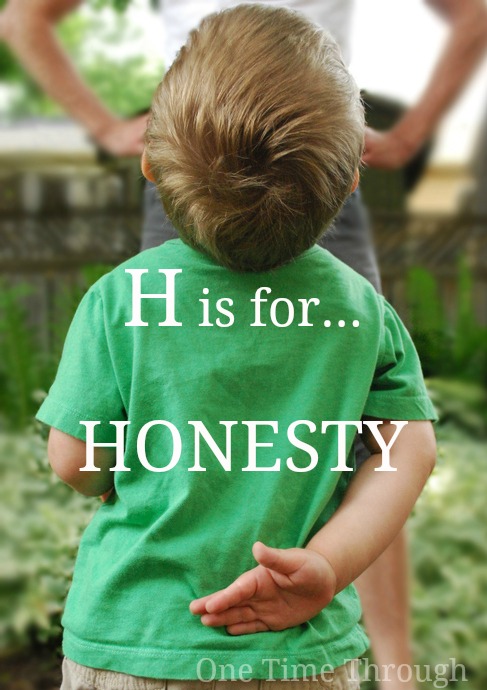
Or remember our macaroni example, “Who spilled this macaroni?” and there is silence….
Why did the boys lie? Well, in the macaroni case – it was clear that the adult was upset about the spill and was focused on blaming.
In my son’s case, it was probably wishful thinking combined with trying to avoid an unpleasant situation (he hates having his diaper changed and always has!)
In both cases, the way the question is phrased – almost begs for kids to lie!
Here are some other examples of setting kids up to lie:
* “Did you break this vase?” when your child is the only one at home that could be responsible, or you saw it happen.
* “Did you eat the chocolate I told you not to?” when you clearly see the chocolate on your child’s face!
* “Why did you dump your drink on the floor?” seems to invite the answer, “I didn’t do it!” instead of focusing on getting your child to make amends by cleaning it up.
The best response for all 3 of these situations is just to state what you see and help your child take responsibility for the situation.
And so in summary…

If our kids feel that they can trust us to react calmly to their mistakes, and be understanding and respectful of their wishful thinking – they will indeed grow up to value honesty – a trait that we will really wish they have when they hit teenage-hood!
Kids’ Books Related to Honesty
If you’re looking for some kids’ books that relate to the topic of honesty, take a look at these ones. All 3 are appropriate for preschoolers/kindergarteners, have colourful engaging pictures, and emphasize the importance of being honest.
The Berenstain Bears and the Truth
It’s True (Little Critter Inspired Kids)

On that note, please be honest with me and let me know what you think about today’s ideas. Leave a comment below!
Follow me on Facebook!
Find all the character series posts on the Character Series page.
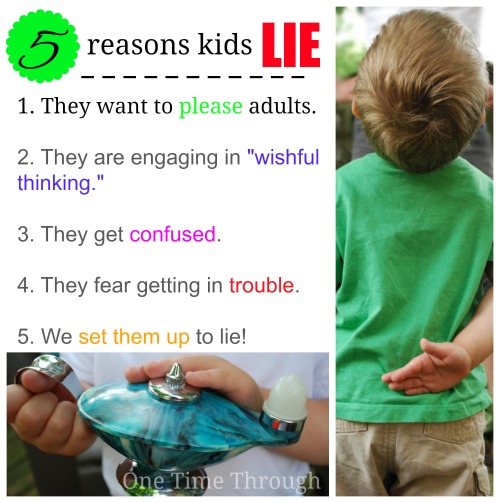
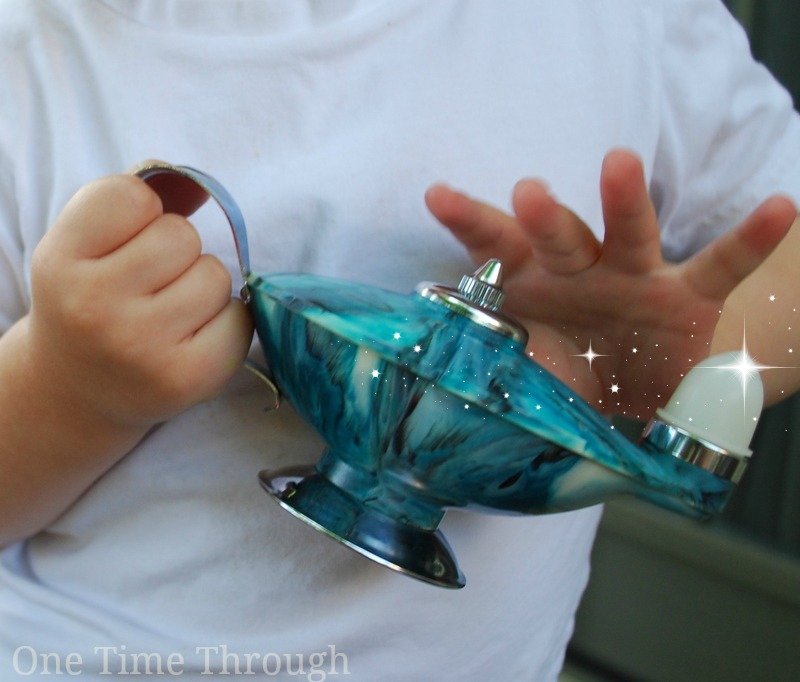
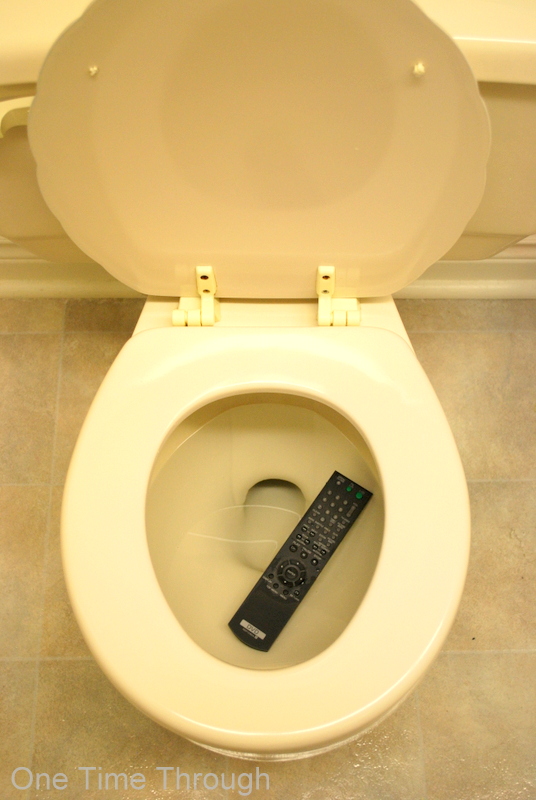



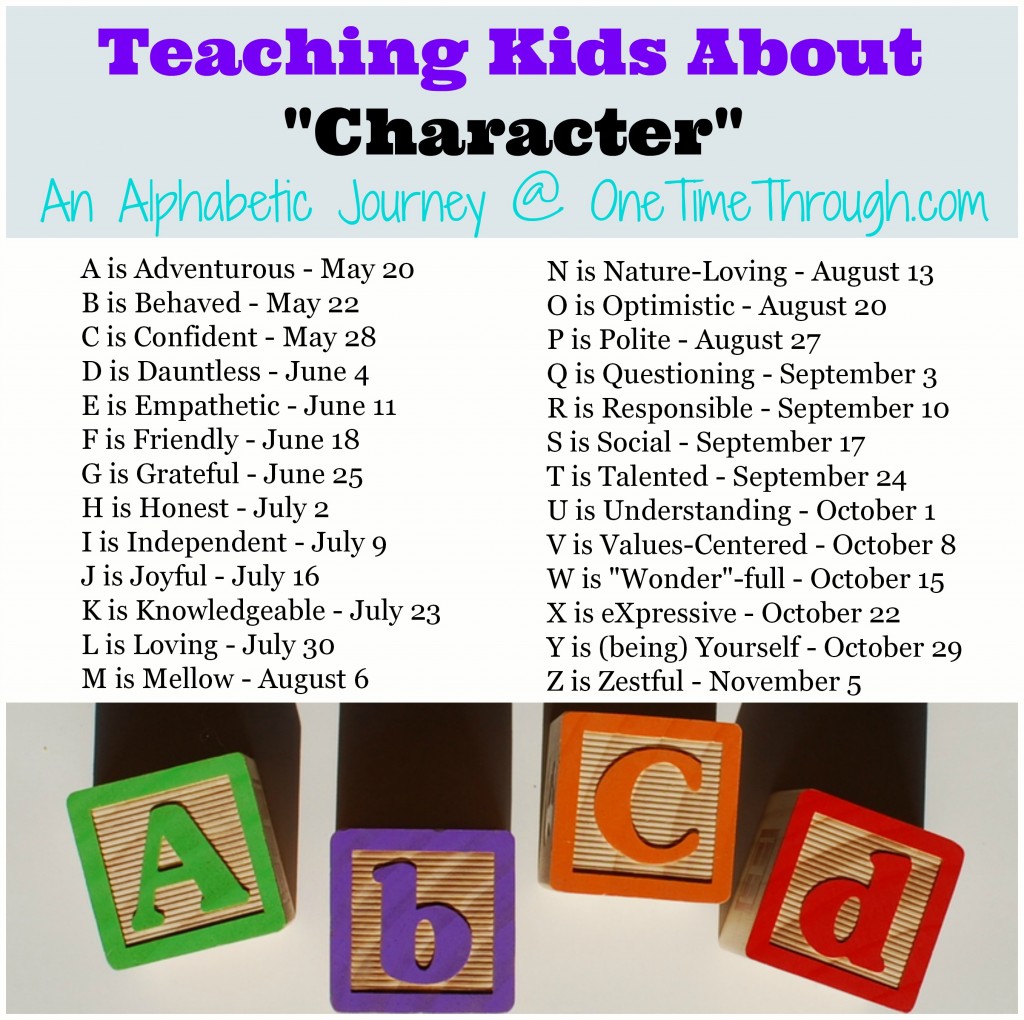
I’ve noticed this in my 2.5 year old too, although it didn’t worry me much because I know kids lie for many reasons other than to be dishonest. This was a very insightful post! #alphabetphoto
Thanks for dropping by Tarana! Glad you enjoyed the post. Best, Sue
What I’m dealing with now is the lying for fear of punishment. What you listed here though is when a child is covering up a mistake or an accident. How would you deal with it differently when the action was on purpose? Such as one child hitting another, or taking toys away, etc. Things done intentionally out of malice or selfishness. I do want to be solution oriented, but there is also clear rule-breaking going on that needs punishment.
My current stance has been when I see a child beginning to lie for self-preservation, I give them several occurrences of “small trouble” or “no trouble” if they tell me the truth the first time I ask, no matter what. Then gradually as they learn to honor the truth above everything, I start to bring punishment into the mix. With most of the kids I’ve cared for this works pretty well, but lately I’ve been struggling with one 4-year-old boy. Along with the typical lies, this child will also occasionally try to tell me that it was really his twin brother who did the thing in question. I’ve dealt with it enough to know that it is almost never the brother, and I know his cues when he is lying. Any tips are greatly appreciated! Thanks!
Thanks for dropping by Melissa. You’ve brought up some really good points and have some important questions that I can see you’re wrestling with! I personally am trying to follow a positive parenting style that does not involve punishment or rewards. You can read more about this decision in my Loving Kids Unconditionally: What to Use Instead of Punishment post: https://onetimethrough.com/loving-kids-unconditionally/. Kids certainly DO act out of selfishness and malice, and this is a normal part of the developmental stage where they are at. For the situations you mentioned above, instead of focusing on the dishonesty, I would probably try to look a little closer at the causes of the behaviours. Is the child struggling to communicate appropriately when they are upset? or are they unsure how to ASK other kids for toys in an appropriate way? The philosophy I follow is that our emphasis should be on teaching them ways to use their words instead of aggressive actions. I have written several posts on this topic. 10 Tips for Helping Aggressive Kids: https://onetimethrough.com/helping-aggressive-kids/ and Teaching Your Child About Their Assertive SUPER-POWERS: https://onetimethrough.com/assertive-kids-super-powers/ Thanks again for dropping by! Best, Sue
Great post Sue, really interesting to hear why they lie. We have a 3.5 year old and she’s honest most of the time. Usually one lying to get herself out of trouble! Thank you for sharing with #alphabetphoto
Thanks Charly! I bet it’s interesting to see the differences in how your two children are developing. Hope you found this helpful. Best, Sue
This is a really interesting series! I just found you through the Mama Reads Monday link up, and I’m so glad I did. Honesty is something that has come up with our preschooler in the last year, too. It’s really tricky to discern which is the reason behind the lying — I think it can change on a case-by-case basis.
I see some people referring to their 2.5 year old “lying,” and having dealt with this then and dealing with it now (at almost 5 years old), I believe I can tell a distinct difference. Now it’s more likely to be a fear of getting in trouble or getting carried away with an imaginary story (but trying to pass it off as real). When he was 2.5 years old, it was more an actual inability to recall details that he deemed unimportant or (like you said) wishful thinking.
It’s interesting because we value exposing our children to all kinds of stories and books and encouraging their little imaginations, as is so crucial to their development. They’re so little they have trouble separating the real from the made up, which can seem like lying. And then there’s REAL lying, which is why it makes it so hard to figure out what the motive is! (One thing I have done — which I don’t know if it helps, but I’d like to think it does — is to read a story and talk about if it’s real or made up. I made it a game to help my little ones begin to form the concept of “truth.”)
Obviously this post has really made me think about honesty and how to approach that. Thanks for sharing this through-provoking post!
Thanks so much for dropping by from theaubreyhunt! Your idea is such a good one – I’m definitely going to start doing that. Such an easy thing to include during reading time too! Thanks so much for sharing and dropping by – I’m glad the post got you thinking! Best, Sue
With regard to the asking your children questions that set them up to lie, the approach you suggested is great, IF you know who did it. I have 4 girls ranging in age from 2 to 7 and I almost never know who did something unless I ask. I can generally narrow it down, only my younger two have potty accidents and leave wet underwear in the bathroom for instance, but it is very rare that I know who did it without asking some tough questions. Generally, my husband and I take great care to explain (before asking any questions) that if the truth is told by the child who did it, the punishment will be less severe, however, this is a tough situation to handle, especially with a full house! On the one hand, I want (and need) to teach my children to take responsibility for their own actions (be they good or bad) but on the other hand, I know that asking those leading questions only leads to a chorus of “It wasn’t me!”
While I am all for teamwork and asking for solutions and help fixing the problem as a family, I also need to foster a sense of independent responsibility and, I’ll call it “crisis management” for lack of a better term, in my kids. If they are in trouble, they NEED to know that they should respond with the truth, followed by a solution, when someone asks. After all, their future bosses and teachers aren’t going to avoid asking those leading questions, and if you always avoid them at all costs, your child is not going to be able to manage the feelings of stress and anxiety that gowith being the culprit, and yet still adhere to the truth. I have found that this is a skill that requires practice. However, it also requires patience and a level head on the part of the parent. In my experience, it is best to avoid those leading questions if you don’t think you are going to be able to respond to the situation in a calm and reasonable manner. If you are going to lose your temper, avoid the question because you won’t be able to teach your child anything other than “gee, next time I’m gonna tell Mom I didn’t do it so she won’t yell at me.” I suppose “pick your battles” is the best advice I’ve ever heard for this type of situation.
Age and relative maturity also play a role in how this is handled. I ask my 2 year old leading questions (have you been into the ice cream?) when I already know the answer (her face is covered in it) so I can demonstrate to her at an early age not only how to handle this situation when it really isn’t a big deal (if, God forbid, they ever got into something poisonous, I absolutely need to hear the truth and she would need to be practiced in telling the truth), but also to let her know that it isn’t a good idea to lie because you will generally get caught. In this case, I can demonstrate that lying will always get you into more trouble (no ice cream for a week), while telling the truth will always go better (wash your face and clean up the mess). Now, for my five (almost six) year old and my seven year old, the same situation would call for a different approach. Before asking the question, I remind them of how valuable the truth is and have each one recall an instance where she got into less trouble because she told the truth. I inform them that there will have to some sort of consequences because whoever did it knows that she is not supposed to eat ice cream whenever she wants but I reiterate the message that the consequences will be less severe (and we will discuss what a fair consequence is together) if she tells the truth. Only then will I ask the question.
This was actually a very interesting read and I enjoyed it. I just wanted to point out that we can’t (and probably shouldn’t) always avoid setting our children up to lie. If only to test how well we have done as parents at teaching them to value and adhere to the truth! Isn’t this parenting thing complicated?!
Thank you so much Genn for taking the time to really reflect and leave your thoughts. My hope with this character series is to share some of the great ideas I have learned about and to get parents and teachers thinking about how OUR choices in responding can affect our kids’ behaviour. I can see that this post got you THINKING! Awesome.
I personally do not believe in using punishment (you can read about my choice and the reasons why my husband and I made it at Loving Our Kids Unconditionally: What to Do Instead of Punishment – https://onetimethrough.com/loving-kids-unconditionally/) and so take quite a different approach to you. But I really appreciate you sharing your ideas and certainly your EXPERIENCE! And yes – this parenting thing IS complicated! Best of luck on your journey, Sue
True lying doesn’t begin until seven or eight years of age with very few exceptions. Society has taught us to use this word liberally in order to justify a toddler’s or preschooler’s sense of creativity. My youngest, now a mom herself with two young children, told her kindergarten teacher her father was a pilot and her baby brother was at daycare on the days I taught at her school. My husband was not a pilot – my daughter liked going on vacations, flying on jets to venture across the country. And she did not have a little brother, but rather an older sister. She was excited to finally be included in going to school with mom and sister. In my opinion, these days young children get the short end of the stick when labeled.
Thanks for dropping by Cindy and I LOVE your example of your daughter’s “creativity!” So funny. And yes – I agree about the probable motivation. There is definitely danger in labels. In fact, this very topic is covered in our latest Character Series post: https://onetimethrough.com/healthy-self-esteem-10-things-parents-can-do-to-help/ Thanks for adding to the discussion! Best, Sue
Kohlberg anyone?
Thanks for dropping by Larry! For those of you unfamiliar with his theories, Lawrence Kohlberg’s theories on moral development have been very influential. The theory is that children must progress through a series of stages in moral development before they can come to think in a way where they are honest becuase it’s the “right thing to do.” Read more at: http://en.wikipedia.org/wiki/Lawrence_Kohlberg's_stages_of_moral_development Best, Sue